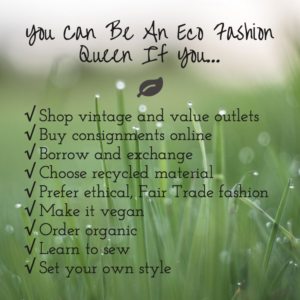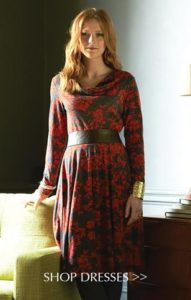If we were to separate clothing into categories, somewhere in between natural fibers like cotton or hemp and man-made petroleum fibers like polyester, we’d find Lyocell, “a natural cellulose” product. Lyocell is made by processing wood pulp into fiber so it can be woven into fabric and sewn into socks, underwear, pants, and blouses, among many other fashion options.
Lyocell, which is also sold under the trade name TENCEL® or Lenzing Lyocell, offers several advantages over conventional cotton and even rayon, another fiber made from cellulose. The trees Lyocell is made from are grown without pesticides, often in sustainably managed forests on land that’s not suitable for other crops. Though harsh chemicals are needed to soften the wood pulp so it can be converted into fiber, the chemicals are captured in a “closed loop” processing system so they can be reused rather than discharged into local water supplies. (NOTE: The Organic Clothing blog cautions people who are highly chemically sensitive to be alert to possible allergic reactions to TENCEL.)
Lyocell also offers advantages over cotton when it comes to water. According to this excellent analysis by the Natural Resources Defense Council, unless the cotton is only grown using rain water, Lyocell can end up using far less water to produce than either conventional or organic cotton. Sustainable textiles expert Coral Rose notes, “I strongly believe Lenzing’s products are a key component to any sustainable fiber strategy, when considering all the environmental impacts associated with fiber growing and production.”
New Innovations in TENCEL® are giving way to several variations of the fabric. TENCEL® MICRO is a very smooth silky fiber, while TENCEL® with Multitouch can be used to make heavier fabrics like denim.
Shopping for TENCEL®
TENCEL® products are widely available, some at very reasonable prices. Forever 21, for example, offers a severl TENCEL-based garments like this blazer.
You can also find a huge selection of TENCEL® clothing at Tianello.
To try out a TENCEL® sheet set, check out Downlite or even your local Bed Bath and Beyond Store.
Use Your Purse!
The U.S. has an extremely high average fiber consumption per capita, approximately 41.8 kg per year compared to the international average of 10.5 kg per year. Clearly, how we choose to spend our money on clothing directly affects the environment. The next time you are faced with a choice between TENCEL® and cotton, choose the most eco-friendly option: TENCEL®.
For More Information…
Don’t miss Part 1 of our series, “How to Shop for Eco-Friendly Clothing”
You can learn more about Tencel if you read this interview with Coral Rose, who has been a featured speaker at events such as The ECO-SHOW, All Things Organic (ATO), and Texworld-New York, to name a few. In this article Coral points out how rare it is to find a company that answers the questions “what is the source of our raw materials? [and] Where were the materials harvested, processed, produced?” Her opinion on the environmental impact of fiber growing and production is that Lenzing Modal and Tencel come out on top.
Modal
Modal, which is also manufactured by Lenzing, is made from beech trees. Modal is highly absorbent and, like Tencel, resists fading. 100% Modal is most often made into towels or bedding, though it blends very well with cotton and is another great choice for clothing.













2 thoughts on “How to Shop for Eco-Friendly Clothes – Part 2: Try TENCEL or Lyocell”
Very educational information about semi-green fabrics. I am curious as to why you left out bamboo. While bamboo cellulose also requires harsh chemicals like Tencel and Modal manufacturing process, it offers huge benefits in terms of fabric drape and softness. Just like the trees used in manufacturing Modal and Tencel , bamboo grows wild thriving only on rain water and no chemical fertilizers and pesticides. However, what separates bamboo from all others is the unique property of fastest growth. Based on these properties, it seems like bamboo is the source of the most sustainable or renewable man made fabric. It would be interesting to know your views as a subject matter expert.
Thanks. I do mention bamboo in other posts, and I agree that bamboo is a very fast-growing plant with minimal water and pesticide requirements. Thanks very much for sharing that information.
Comments are closed.